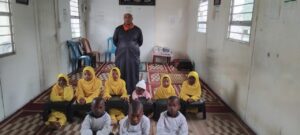By Al Qalam Reporter
Awqaf-SA will feature a series of Muslims heroes – past and present – for future projects, writes an Al Qalam Reporter.
Awqaf-SA has kicked off a project to honour past and present Muslim heroes who fought in the struggle for justice – and they begin with the launch of a book by journalist Shafiq Morton that chronicles the life and times of Tuan Guru who arrived in the Cape in 1780.
The book entitled heroes “From the Spice Islands to Cape Town: the Life and Times of Tuan Guru”, was commissioned by Awqaf-SA. The book forms part of the Awqaf’s Leaders and Legacies and will be launched in Cape Town on March 17.
Awgaf-SA, said in a press release that early Muslims of the Cape have been part of the struggle for human rights and freedom since their banishment to Robben Island and other parts of the Cape.
An Awqaf spokesperson said: “In the early 17th century. We recall the revered names of political prisoners Tuan Guru, Shaykh Yusuf, Hadjie Matarim and others (May Allah be pleased with them) who made the ultimate sacrifice against Dutch and British colonizers and slave masters.”
Tuan Guru, which means “Master Teacher”, is the popular name of a hero of Cape Islam. His full name is Imam ‘Abdullah ibn Qadi ‘Abd al-Salam, which means that he was the son of a religious judge, Qadi ‘Abd al-Salam.
Qadi ‘Abd al-Salam hailed from the royal house of Tidore, which was one of the famous Spice Islands in Indonesia. The spice for which Tidore was famous was the clove. Tuan Guru’s mother was Boki, or Princess, Nuriniyah.
Tuan Guru had five brothers and two sisters.
Tuan Guru was born in Tidore in 1712. He died in Cape Town in 1807 aged 95 years. He arrived at the Cape on the Dutch East India Company sailing ship, the Zeepard, in 1780 when he was 68 years old. He was sent to Robben Island.
The Dutch sent him to the Cape because they were afraid he would make friends with the English, a Dutch enemy.
Tuan Guru was a religious teacher who cared for the slave community. He established our first madrasah (or school) in 1793, and shortly after that, the first mosque in South Africa.
Tuan Guru, who was imprisoned on Robben Island twice, was a Hafiz ul-Qur’an and wrote out the Holy Book there from memory.
He also wrote another work called the “Ma’rifat wal Iman wal Islam” (the Knowledge of Faith and Deen) a book of 613 pages, from which he taught the Muslims of Cape Town about Islam.
Tuan Guru’s mosque and madrasah were established in Dorp Street in the Bo Kaap on the property of Saartjie van de Kaap, daughter of Coridon of Ceylon, who was one of the first black land owners in the Bo-Kaap.
The mosque is called “Masjid ul-Awwal” (the First Mosque), and is still standing today, though it has been rebuilt several times over the last 200 years. Many tourists, and important world leaders such as Nelson Mandela, have enjoyed visiting this historical mosque.
As a religious teacher and healer, Tuan Guru provided comfort to the community. It suffered greatly under the Dutch. The Statutes of India banned all faiths other than the Dutch Reformed Church, and slaves enjoyed very little human rights.
The sjambok, a whip made from animal skin, was frequently used by slave owners. Slaves who deserted, or who disobeyed their masters, were sentenced to death. Offenders were hung outside the Castle gates, or broken on the wheel, a machine which tore a person’s arms and legs off.
For these reasons, Tuan Guru once said that the Cape was a “place of sadness”, and that one day the community would be granted its freedom, and that its descendants would live within a circle of karamats – holy men who would protect us from fire, famine, earthquake and tidal waves.
Shafiq Morton, the writer of the book is an award-winning Cape Town-based photo-journalist and has authored three other books namely: Notebooks from Makkah and Madinah (a Saudi Arabian travelogue); Surfing behind the Wall, My Palestinian Journey; Imtiaz Sooliman and Gift of the Givers – A Mercy to All.


